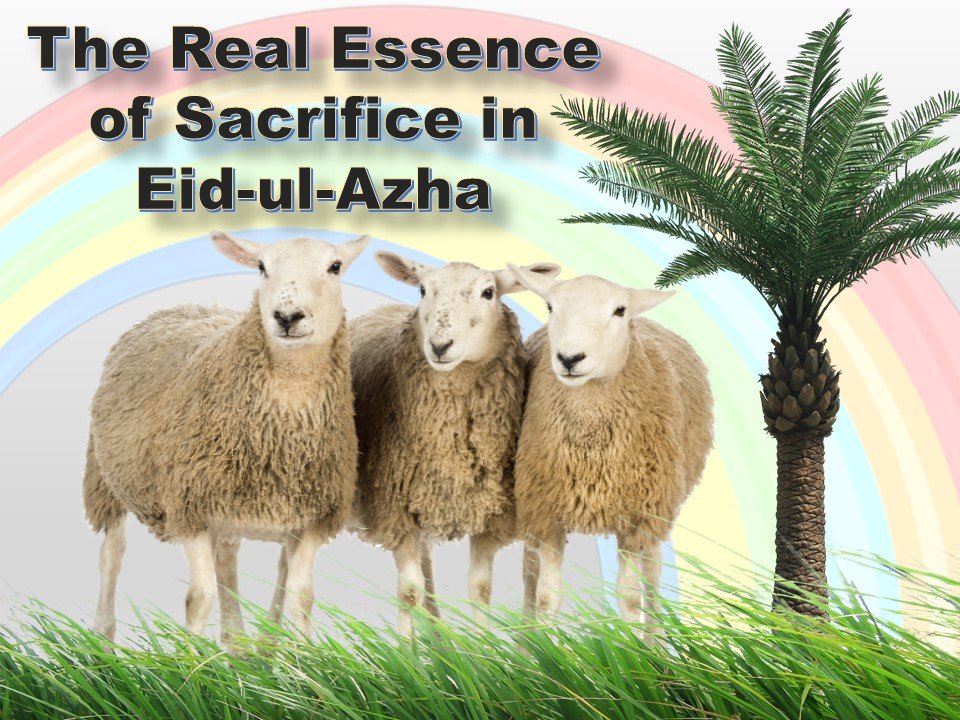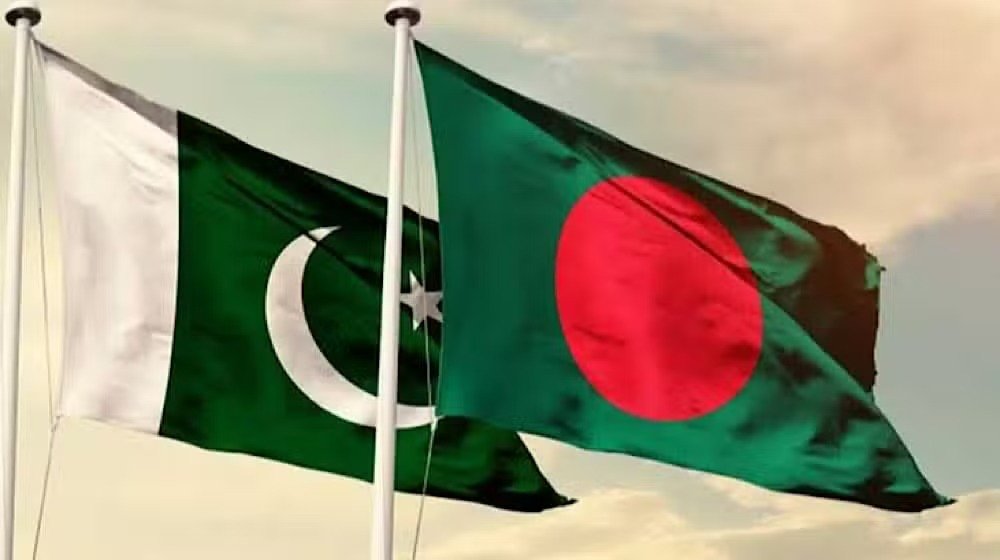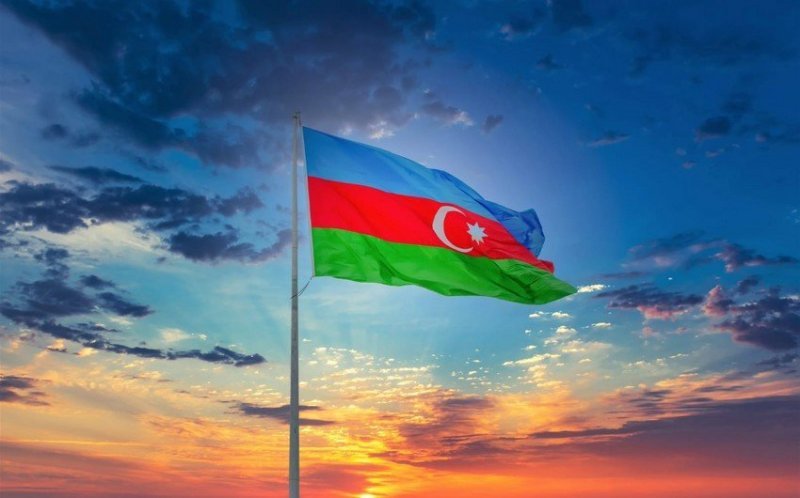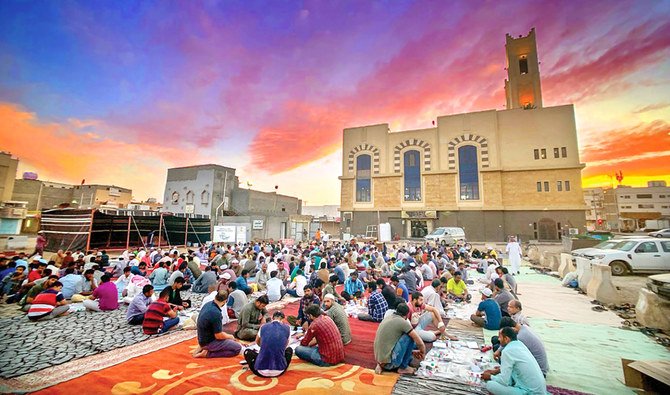The true essence of sacrifice, as exemplified in the story of Hazrat Ibrahim (AS) and his son Hazrat Ismail (AS), lies not merely in the physical act of slaughtering an animal but in the profound spiritual submission, moral courage, and unwavering obedience to the will of Allah. It is the conversation between a father and his son that encapsulates the real philosophy of sacrifice. The Qur’an beautifully records this sacred dialogue in Surah As-Saffat:
“And when he (Ismail) was old enough to accompany him, he (Ibrahim) said, ‘O my son, indeed I have seen in a dream that I must sacrifice you, so see what you think.’ He said, ‘O my father, do as you are commanded. You will find me, if Allah wills, of the steadfast.'” (Surah As-Saffat 37:102)
This extraordinary exchange is not just a tale from the past; it is a timeless parable of submission, discipline, and the triumph of faith over worldly attachments. The sacrificial ram, which was later provided by Allah as redemption, became a symbol, but what we often forget is the essence — the conversation. The willingness of Hazrat Ibrahim (AS) to let go of what he loved most and Hazrat Ismail’s (AS) submission to Allah’s command teaches us that real sacrifice is about surrendering our will to the will of the Almighty. We remembered the ram, the physical sacrifice, but we forgot the conversation, the spiritual submission that it represented.
Today, as the Islamic Ummah and especially Pakistan face complex crises — political instability, economic downturns, moral decay, and a fractured society — it is high time we revive the real philosophy of sacrifice in our personal and collective lives. Our nation is burdened by corruption, social injustice, intolerance, and greed. The lesson from Ibrahim’s (AS) story is not merely about commemorating Eid-ul-Adha by slaughtering animals; it is a call to slaughter our egos, our illegal desires, and our lust for wealth and power.
The Quran commands: “Indeed, Allah does not change the condition of a people until they change what is in themselves.” (Surah Ar-Ra’d 13:11)
This verse resonates profoundly with our current state. If Pakistan is to rise and reclaim its dignity and honor, it must undergo internal purification. Our leaders must sacrifice their self-interested ambitions for the collective good. Our citizens must relinquish dishonesty, bribery, tax evasion, and misuse of public resources. Every individual must reflect on what they are willing to give up for the sake of the greater good. The spirit of sacrifice should translate into ethical governance, social justice, and national solidarity.
Hazrat Ibrahim (AS) was not commanded to sacrifice his son to cause pain, but to demonstrate complete submission to divine will. The command was a test, and the response was the highest form of spiritual maturity. Pakistan, too, is going through trials. We must ask ourselves — what are we willing to sacrifice to earn Allah’s pleasure and to restore our nation to the path of righteousness? Can we sacrifice our sectarian divides for the sake of unity? Can we give up hate speech and extremism for peace? Can we abandon illegal gains to promote fair economic practices?
Prophet Muhammad (ﷺ) said, “There is a piece of flesh in the body, and if it is sound, the whole body is sound. And if it is corrupt, the whole body is corrupt. That piece is the heart.” (Sahih Bukhari & Sahih Muslim)
The reformation of the heart is essential. The spiritual disease that afflicts the heart — greed, envy, pride — must be uprooted. Our political culture must be cured of hypocrisy and self-interest. Our economy must be purified of usury and exploitation. And our education must inculcate values that teach responsibility, truthfulness, and service to humanity.
If we reflect on the act of Hazrat Ibrahim (AS), we will see it was not a blind sacrifice. It was preceded by a divine vision, deliberate reflection, consultation with his son, and then full obedience. Similarly, Pakistan must not take any steps without a clear vision. National policies should be inspired by consultation, long-term foresight, and ethical foundations. Our sacrifices must have a purpose — a higher cause that aligns with Islamic principles and national interest.
The Quran states: “Their meat will not reach Allah, nor will their blood, but what reaches Him is piety from you.” (Surah Al-Hajj 22:37)
This verse demolishes the notion that sacrifice is about the animal alone. The real sacrifice is Taqwa — God-consciousness. Pakistan needs this consciousness in all segments of its society. Civil servants must act with integrity. Businessmen must uphold fair practices. Religious scholars must guide with sincerity and unity. The media must abandon sensationalism for truth. And youth must sacrifice temporary temptations for long-term contribution to national development.
The conversation between Hazrat Ibrahim (AS) and Hazrat Ismail (AS) also teaches us the value of intergenerational trust and cooperation. A father consults his son. A son agrees to the hardest of trials. In today’s world, where generational gaps are widening, and family structures are weakening, this story reminds us of the strength that lies in spiritual upbringing and mutual respect. Pakistani society must rebuild family institutions on the values of faith, communication, and responsibility.
In whatever capacity we are performing our duties— each segment of society must internalize the lesson of sacrifice. Without it, we remain fragmented. With it, we become a resilient nation. Sacrifice in its true sense means giving up our lower selves for a higher goal. The problem is not that we lack talent or resources, but that we are unwilling to give up comfort, luxury, shortcuts, and selfishness.
On this Eid, as the Ummah remembers the legacy of Hazrat Ibrahim (AS), let Pakistan lead by example. Let us revive the spirit of the conversation — the moment of truth, faith, and resolve. Let us bring the ethos of sacrifice into our homes, offices, streets, and government.
Let us no longer remember the ram only, but the willingness behind it. Let our sacrifices this year be internal as well — sacrifice of arrogance for humility, of fraud for honesty, of division for unity, of despair for hope.
Only then can we expect divine help, social harmony, and national revival. Only then will our sacrifices have meaning in the sight of Allah and in the history of nations. Only then can Pakistan become what Allama Iqbal dreamed and Quaid-e-Azam strived for — a nation forged not by blood alone, but by belief, sacrifice, and righteousness.

Mr. Muhammad Mohsin Iqbal is the Director General National Assembly Parliament House Islamabad.

Director General National Assembly Parliament House Islamabad.













